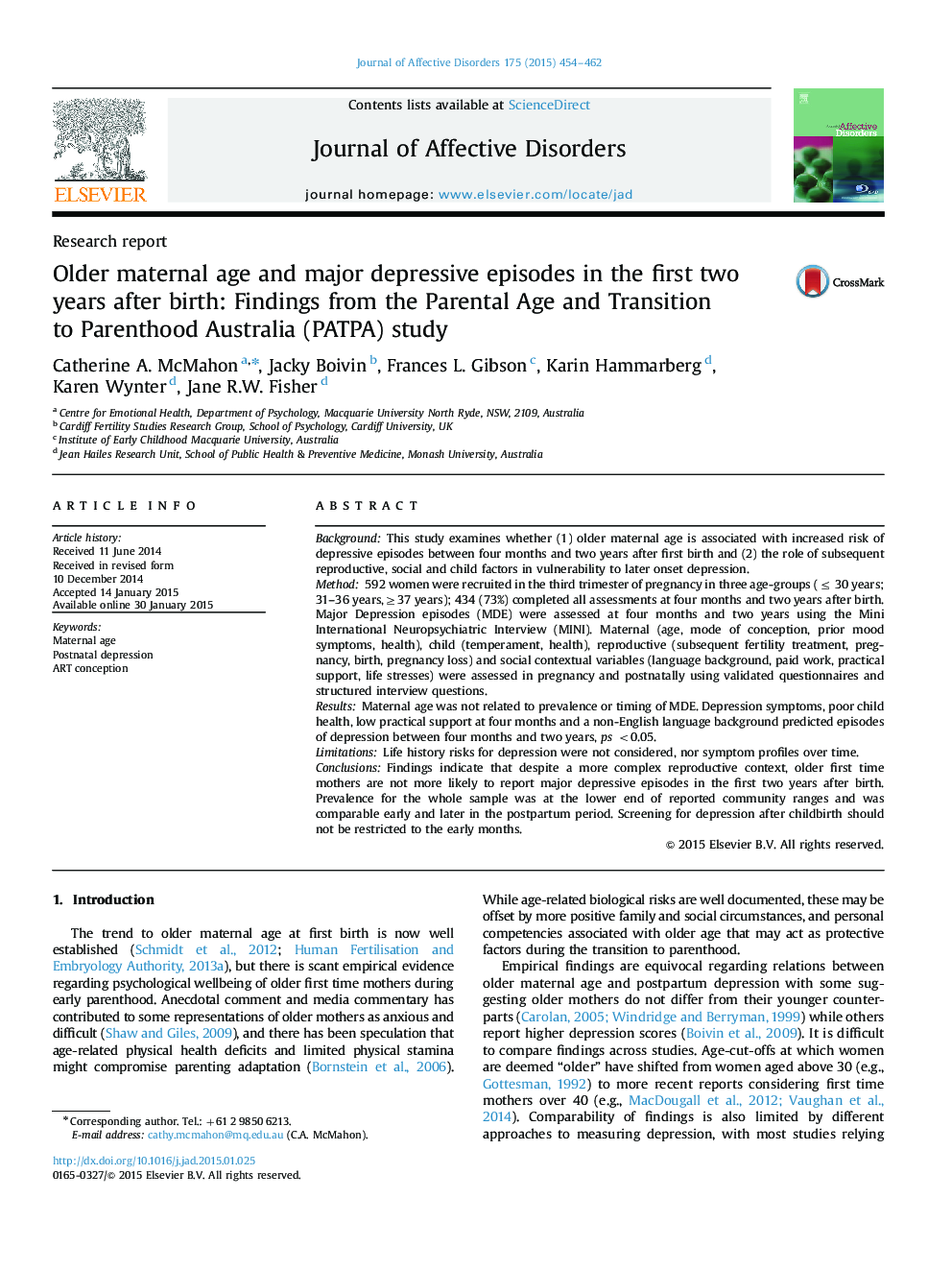| Article ID | Journal | Published Year | Pages | File Type |
|---|---|---|---|---|
| 6232036 | Journal of Affective Disorders | 2015 | 9 Pages |
BackgroundThis study examines whether (1) older maternal age is associated with increased risk of depressive episodes between four months and two years after first birth and (2) the role of subsequent reproductive, social and child factors in vulnerability to later onset depression.Method592 women were recruited in the third trimester of pregnancy in three age-groups (⤠30 years; 31-36 years,â¥37 years); 434 (73%) completed all assessments at four months and two years after birth. Major Depression episodes (MDE) were assessed at four months and two years using the Mini International Neuropsychiatric Interview (MINI). Maternal (age, mode of conception, prior mood symptoms, health), child (temperament, health), reproductive (subsequent fertility treatment, pregnancy, birth, pregnancy loss) and social contextual variables (language background, paid work, practical support, life stresses) were assessed in pregnancy and postnatally using validated questionnaires and structured interview questions.ResultsMaternal age was not related to prevalence or timing of MDE. Depression symptoms, poor child health, low practical support at four months and a non-English language background predicted episodes of depression between four months and two years, ps <0.05.LimitationsLife history risks for depression were not considered, nor symptom profiles over time.ConclusionsFindings indicate that despite a more complex reproductive context, older first time mothers are not more likely to report major depressive episodes in the first two years after birth. Prevalence for the whole sample was at the lower end of reported community ranges and was comparable early and later in the postpartum period. Screening for depression after childbirth should not be restricted to the early months.
